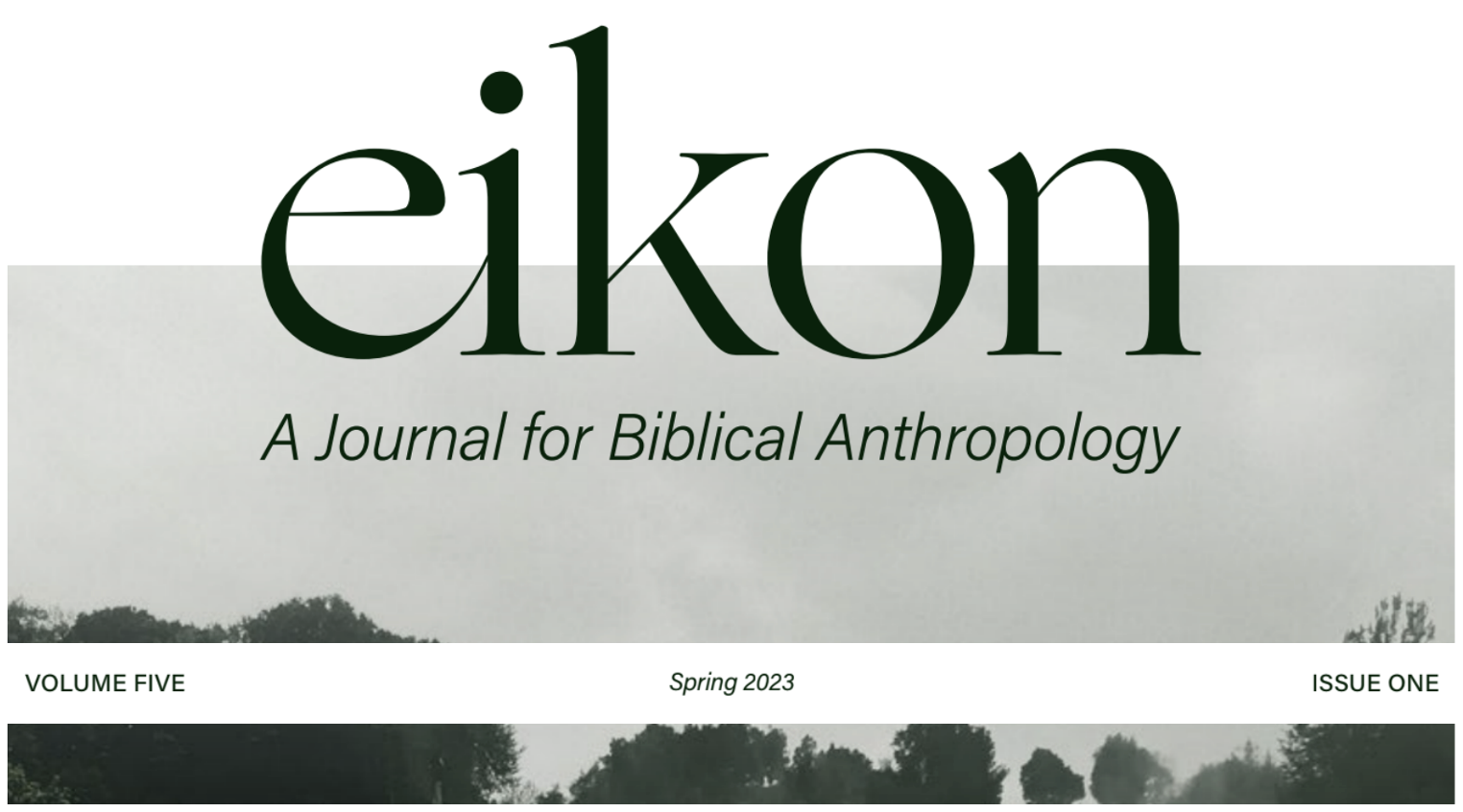 This issue of Eikon is devoted almost entirely to a chapter-by-chapter review of the third edition of Discovering Biblical Equality (DBE). Our reviews reveal that this third edition marks a significant departure from previous iterations of the intra-evangelical debate between complementarians and egalitarians. While most of the book is refreshed and repackaged arguments for egalitarianism, some chapters have given up significant ground to LGBTQ ideology, including an embrace of personhood theory, the use of gender-neutral pronouns for God and preferred pronouns for our neighbors, suggestions of feminine names for God, the promotion of “Side-B Gay Christianity” and same-sex covenanted partnerships — or marriage-lite, as it has been called by critics — and, most alarming of all, a chapter that entails an endorsement of transgender ideology, including so-called gender reassignment surgery.
This issue of Eikon is devoted almost entirely to a chapter-by-chapter review of the third edition of Discovering Biblical Equality (DBE). Our reviews reveal that this third edition marks a significant departure from previous iterations of the intra-evangelical debate between complementarians and egalitarians. While most of the book is refreshed and repackaged arguments for egalitarianism, some chapters have given up significant ground to LGBTQ ideology, including an embrace of personhood theory, the use of gender-neutral pronouns for God and preferred pronouns for our neighbors, suggestions of feminine names for God, the promotion of “Side-B Gay Christianity” and same-sex covenanted partnerships — or marriage-lite, as it has been called by critics — and, most alarming of all, a chapter that entails an endorsement of transgender ideology, including so-called gender reassignment surgery.
Before the publication of DBE’s third edition, evangelical egalitarians have historically and at least nominally maintained orthodox commitments when it comes to LGBTQ ideology and biblical sexuality. But as several chapters in this new edition demonstrate, that commitment seems to be eroding. This erosion parallels the changes that have taken place through successive waves of feminism, each of which has grown more radical in their attempt to downplay and even erase the distinction between the sexes.[1] Feminism greased the skids for functional interchangeability between men and women, and society has slipped right into ontological interchangeability.[2] How are these trends revealed in this issue?
Christa McKirland’s chapter, which I (Colin) review in this issue, is perhaps the most radical chapter in the book, which is significant because she serves as associate editor for this edition of DBE. In her chapter, McKirland not only rejects gender essentialism, but she also uses the gender-neutral pronoun “Godself” in place of masculine pronouns to refer to God. She also uses masculine pronouns to refer to a biological woman and even refers to this woman as a Christian, despite this individual’s embrace of a transgender identity. Most troubling, McKirland opens the door for people to undergo so-called gender reassignment surgery, provided they pursue it in submission to the Spirit in order “to become more like Christ.”
Another noteworthy chapter is by Ronald Pierce, who is also an editor of this edition of DBE, reviewed in this issue by Jonathan Swan. In this chapter, titled “BIblical Equality and Same-Sex Marriage,” Pierce endorses the orthodox position on biblical marriage, against our culture’s attempt to redefine marriage to include same-sex couples. But as Swan demonstrates, along the way, he treats the matter as if it were a secondary issue about which genuine Christians may agree to disagree. Pierce refers to “Side-A Gay Christians,” those who embrace homosexuality completely, as Christians, even though their position distorts the very institution God gave the world to picture the Gospel. He also commends “Side-B Gay Christianity” and their covenanted partnerships and gay identities.
While these chapters are the most alarming, each chapter in this book contains other significant errors. Stephen Wellum and Kyle Claunch helpfully engage and advance the Trinity debate from a complementarian and Nicene perspective, while correcting significant egalitarian errors in their respective chapters under review. Several other reviewers engage and refute the standard egalitarian arguments that have been repackaged for this new edition: Anne Kennedy, Peter Gentry, Andy Naselli, Peter Gurry, Buist Fanning, Ray Van Neste, Alan Branch, Sharon James, and myself (Denny Burk) address these chapters on their own merits and show how a complementarian perspective better accounts for and represents the biblical data. Importantly, these are not just reviews, they are review essays, and each reviewer advances the conversation in a helpful direction. Finally, Jonathan Leeman has provided a tour de force answer to the accusation that says complementarianism causes abuse. Leeman’s response to this accusation is honest, careful, pastoral, and even practical.
The cultural winds and the spirit of the age are relentless. But we will not relent as long as we have breath. We will continue to cast anchor with Christ, no longer “tossed to and fro by the waves and carried about by every wind of doctrine, by human cunning, by craftiness in deceitful schemes” (Eph 4:14). His Word is good, and it is enough. May this first issue in the fifth volume of Eikon demonstrate such.
Colin J. Smothers
Eikon Executive Editor
Denny Burk
Eikon Editor-in-Chief
[1] William Manchester observed this society-upending effect in 1993, less than a decade after CBE was founded: “the erasure of the distinctions between the sexes is not only the most striking issue of our time, it may be the most profound the race has ever confronted.” William Manchester, “A World Lit Only By Change,” U.S. News & World Report (October 25, 1993), 6. This quote has appeared in this journal before in Colin J. Smothers, “Creation and Discrimination: Why the Male-Female Distinction Makes a Difference” Eikon 1.2 (Fall 2019).
[2] See Colin J. Smothers, “Is the Slippery Slope Actually Slippery? Egalitarianism and the Open-and-Affirming Position” 9Marks Journal (December 2019).
You, too, can help support the ministry of CBMW. We are a non-profit organization that is fully-funded by individual gifts and ministry partnerships. Your contribution will go directly toward the production of more gospel-centered, church-equipping resources.